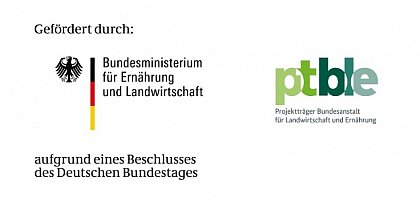Wheat in efficient crop rotations in the interplay of an ideal development of nutrients

Short description
The chosen approach simultaneously pursues two significant target areas, namely the improvement of nutrient use efficiency and the increase of drought stress tolerance. While tolerance to erratically occurring dry periods serves as a strategy for adapting to the consequences of climatic changes, higher nitrogen use efficiency should contribute to reducing future negative impacts on the environment due to nitrogen losses from agricultural production. Both are to be achieved through wheat genotypes that exhibit significantly increased root growth and by identifying crop production techniques that are optimised for this purpose. Among other things, it will be investigated how wheat genotypes with differently developed root systems affect the uptake of nitrogen in different crop rotation sequences. From this, a holistic concept for more environmentally friendly wheat production is to be developed, which in practical agriculture will lead to achieving quantitatively and qualitatively high (baking) wheat yields with less nitrogen input and under drier growing conditions.
Project duration
Oct 2018 – Dec 2022
Staff involved
- Mathias Gäbler
- PD Dr. Jan Rücknagel
- Steffen Both
- Viola Röder
- Helge Pentschew
Collaboration partners
- Justus-Liebig-University Gießen (Germany)
- NPZ Innovation GmbH, Holtsee (Germany)
- W. von Borries-Eckendorf GmbH & Co. KG, Leopoldshoehe (Germany)
Funding
Federal Ministry of Food and Agriculture, Project Executing Agency: Federal Office for Agriculture and Food
Impressions & photos

Field experiment in Merbitz (Photo: Paula Fuchs)

